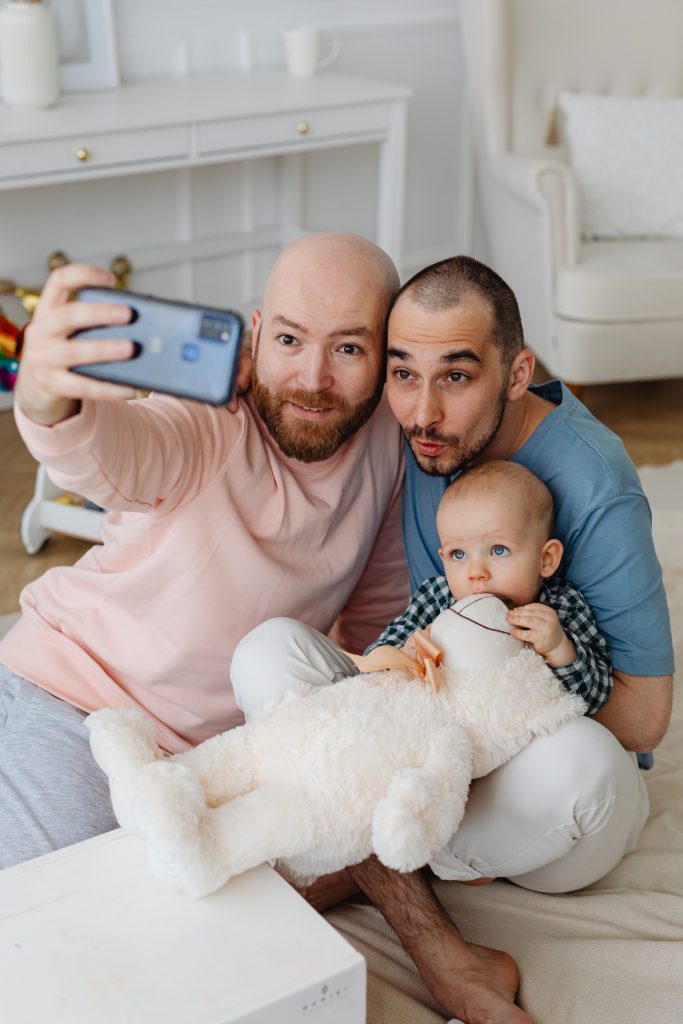
Postpartum Depression Counseling
The birth of a new baby can trigger a mix of powerful emotions, from joy and awe to anxiety and fear. It can also result in an emotion you might not expect — depression.
- What Is Postpartum Depression?
- Postpartum Depression Symptoms
- Therapy For Postpartum Anxiety
- Feeling A Loss of Identity
- Transitioning To Parenthood
- Stress Of Working Parents
New mothers are especially susceptible to postpartum depression, or PPD, within the first year postpartum. If you or someone you know is experiencing severe mood swings, lack of joy, fatigue, irritability, insomnia, a loss of appetite or difficulty bonding with their newborn, PPD may be at play. Postpartum depression is never something to be ashamed about, but it should also never be ignored.
PPD may go unnoticed due to mild symptoms, but in other serious cases, it may lead to suicidal ideation. In this article, we’ll take you through the signs and symptoms of postpartum depression, as well as options for treatment.
Meet Our Therapists
filter by:
Therapy For Postpartum Depression
When you are experiencing postpartum depression, you want relief right away. You want to feel like yourself again and enjoy your new baby. While your doctor can offer you help, counseling is part of the solution for many new moms.
Your mind and body go through many changes during and after pregnancy. If you feel sad, emotionless or empty most of the time or for longer than two weeks before or after pregnancy, it’s time to reach out for help.
Taylor Counseling Group offers counseling services for postpartum depression, and we are ready to help you and your baby overcome challenges and be as healthy as possible. We invite you to schedule an appointment online to learn more about how we can help you overcome PPD today.

What Is Postpartum Depression?
Postpartum depression is a mental health concern that most often affects mothers within the first year of their babies’ birth. PPD can affect any parent, although it most often affects mothers who have given birth.
During pregnancy, hormone levels — particularly estrogen and progesterone — increase considerably, and they fall drastically within the hours or days following childbirth. In some cases, the thyroid gland can also be affected, leaving women more at risk for depression.
According to the Illinois Department of Public Health, between 10% and 20% of new mothers experience postpartum depression. Many women also experience the baby blues — not to be confused with postpartum depression — following childbirth. Women with the maternity blues often describe symptoms of anxiety, irritability and tearfulness. These ailments usually decrease within a couple of weeks, and many new moms report feeling relieved knowing their feelings are normal and temporary.
Schedule A Therapy Session
Book Online
Symptoms of Postpartum Depression
Postpartum depression can occur any time within the first year after a woman gives birth and is most likely to show up as extreme anxiety. New mothers with postpartum often feel overwhelmed and don’t want to be left alone.
Symptoms of postpartum depression include:
- Appetite disruption accompanied by rapid weight loss
- Mental confusion and fogginess
- Tired most of the day
- Mood swings and insomnia
- Feeling inadequate as a mother
- Exhausted but unable to sleep, even as your baby sleeps
- Crying more than usual
- Feeling sad most of the day
- Unable to enjoy things you used to
- Feeling like you will always feel this way
- Feelings of panic or disturbing memories triggered by birth trauma
- Repetitive, compulsive behaviors including checking, counting and an excessive focus on hygiene and cleanliness
Treating Postpartum With Therapy
About 90% of women experiencing PPD can be treated successfully with a combination of psychotherapy and medication, or just medication.
A support group may also be helpful in learning coping skills. In severe cases, hospitalization or electroconvulsive therapy, or ECT, may be used to treat depression symptoms involving delusions, hallucinations or overwhelming suicidal thoughts.
We have offices located in:

Therapy For Postpartum Anxiety
Postpartum anxiety (PPA) is similar to postpartum depression in that it impacts people within the first year of childbirth or adoption. People with PPA may experience intense fear, worry, panic and dread during the postpartum period. Although some levels of worry and anxiety are expected after welcoming a baby, postpartum anxiety is overwhelming and continuous.
Postpartum anxiety and postpartum depression can occur together and have many overlapping symptoms, but they are different. With postpartum depression, you may experience frequent crying and sadness and feel incapable of caring for your child, whereas with postpartum anxiety, you experience excessive panic and worrying thoughts.
Postpartum anxiety symptoms may include:
- Irritability and the inability to relax
- Increased heart rate
- Racing thoughts about worst-case scenarios
- Obsessing over fears
- Disrupted sleep
- Feeling short of breath
- Loss of appetite
Speaking to a therapist may alleviate your postpartum anxiety symptoms. If necessary, medication may be prescribed by your health care practitioner.

Loss of Identity
Fear of losing identity is something parents may struggle with after adoption or childbirth. A parent may feel their only identity is being a parent and no longer an individual. It’s not unusual for parents to feel tired, worried and unhappy once bringing a baby home, but if these feelings persist and are overwhelming, seeking professional help is important.
A baby may bring great joy and love to your home, but the sudden changes may cause you to feel the loss of:
- Time for leisure and social activities
- Freedom and spontaneity
- Time to be alone or with your partner and friends
- Confidence in your appearance
- Your professional identity
- Your ability to make money
Loss of identity may make you feel trapped and unprepared for the significant changes in your life. It takes time to adjust. Be kind to yourself and reach out for support from loved ones. Therapy can help you re-identify your personhood if the feelings persist.
Read more about Me, Myself, and Mommy? →

Parenthood Transition
The parenthood transition includes physical, psychological, social and relational changes. You are adapting to the physical changes of having a baby, experiencing psychological changes, facing the identity shift from individual to parent and forming a bond with your child. In essence, you are redefining your identity and physical image during the motherhood transition.
The transition may not always be smooth, and postpartum depression or anxiety may cause complications. Reaching out for support from family and a therapist can help you feel less isolated during the transition.
Read about Parenting Tips for First Time Parents →

The Stress of Being a Working Mom or Parent
Being a working parent is difficult. Work and home priorities tug at each other and may cause stress, anxiety and, in some cases, burnout. Caring for your kids is a hectic job, and working while doing this is challenging. It is essential to prioritize your mental and physical health and let go of guilt when taking time to recharge. Your children will benefit from a relaxed, present and healthy parent. You can also:
- Set healthy workplace and home boundaries.
- Choose a hobby and schedule time each week to enjoy it.
- Prioritize getting enough sleep, exercise and relaxation time.
- Avoid comparing yourself to other parents.
- Seek a therapist’s help to sort through emotions and practicalities.
Related Articles & Resources:

